第30章 Haste
The eagerness and strong bent of the mind after knowledge,if not warily regulated,is often a hindrance to it.It still presses into further discoveries and new objects and catches at the variety of knowledge,and therefore often stays not long enough on what is before it to look into it as it should,for haste to pursue what is yet out of sight.He that rides post through a country may be able from the transient view to tell how in general the parts lie,and may be able to give some loose deion of here a mountain and there a plain,here a morass and there a river,woodland in one part and savannas in another.Such superficial ideas and observations as these he may collect in galloping or er it.But the more useful observations of the soil,plants,animals and inhabitants with their several sorts and properties must necessarily escape him;and it is seldom men ever discover the rich mines without some digging.
Nature commonly lodges her treasure and jewels in rocky ground.
If the matter be knotty and the sense lies deep,the mind must stop and buckle to it and stick upon it with labour and thought and close contemplation,and not leave it till it has mastered the difficulty and got possession of truth.But here care must be taken to avoid the other extreme:a man must not stick at every useless nicety and expect mysteries of science in every trivial question or scruple that he may raise.He that Mill stand to pick up and examine every pebble that comes in his way is as unlikely to return enriched and loaded with jewels as the other that traveled full speed.Truths are not the better nor the Worse for their obviousness or difficulty,but their value is to be measured by their usefulness and tendency.Insignificant observations should not take up any of our minutes,and those that enlarge our view and give light towards further and useful discoveries should not be neglected,though they stop our course and spend some of our time in a fixed attention.
There is another haste that does often and will mislead the mind,if it be left to itself and its own conduct.The understanding is naturally forward,not only to learn its knowledge by variety (which makes it skip over one to get speedily to another part of knowledge),but also eager to enlarge its views by running too fast into general observations and conclusions without a due examination of particulars enough whereon to found those general axioms.This seems to enlarge their stock,but it is of fancies not realities;such theories built upon narrow foundations stand but weakly,and,if they fall not of themselves,are at least very hardly to be supported against the assaults of opposition.
And thus men,being too hasty to erect to themselves general notions and ill grounded theories,find themselves deceived in their stock of knowledge when they come to examine their hastily assumed maxims themselves or to have them attacked by others.General observations drawn from particulars are the jewels of knowledge,comprehending great store in a little room;but they are therefore to be made with the greater care and caution,lest,if we take counterfeit for true,our loss and shame be the greater when our stock comes to a severe scrutiny.
One or two particulars may suggest hints of enquiry,and they do well who take those hints;but if they turn them into conclusions and make them presently general rules,they are forward indeed,but it is only to impose on themselves by propositions assumed for truths without sufficient warrant.To make such observations is,as has been already remarked,to make the head a magazine of materials which can hardly be called knowledge,or at least it is but like a collection of lumber not reduced to use or order;and he that makes everything an observation has the same useless plenty and much more falsehood mixed with it.The extremes on both sides are to be avoided,and he will be able to give the best account of his studies who keeps his understanding in the right mean between them.